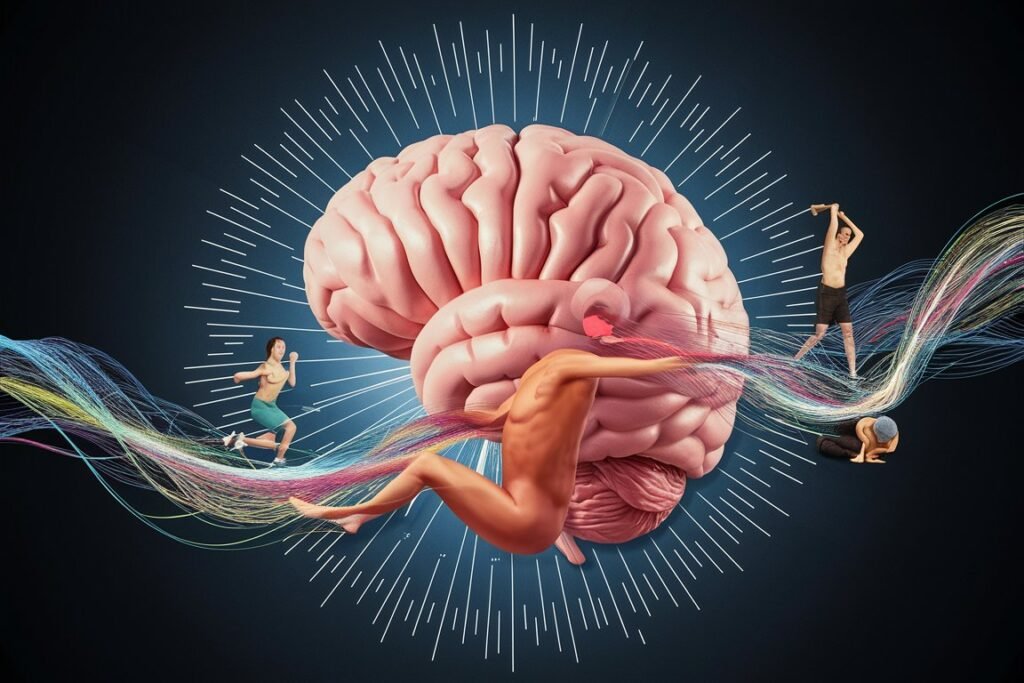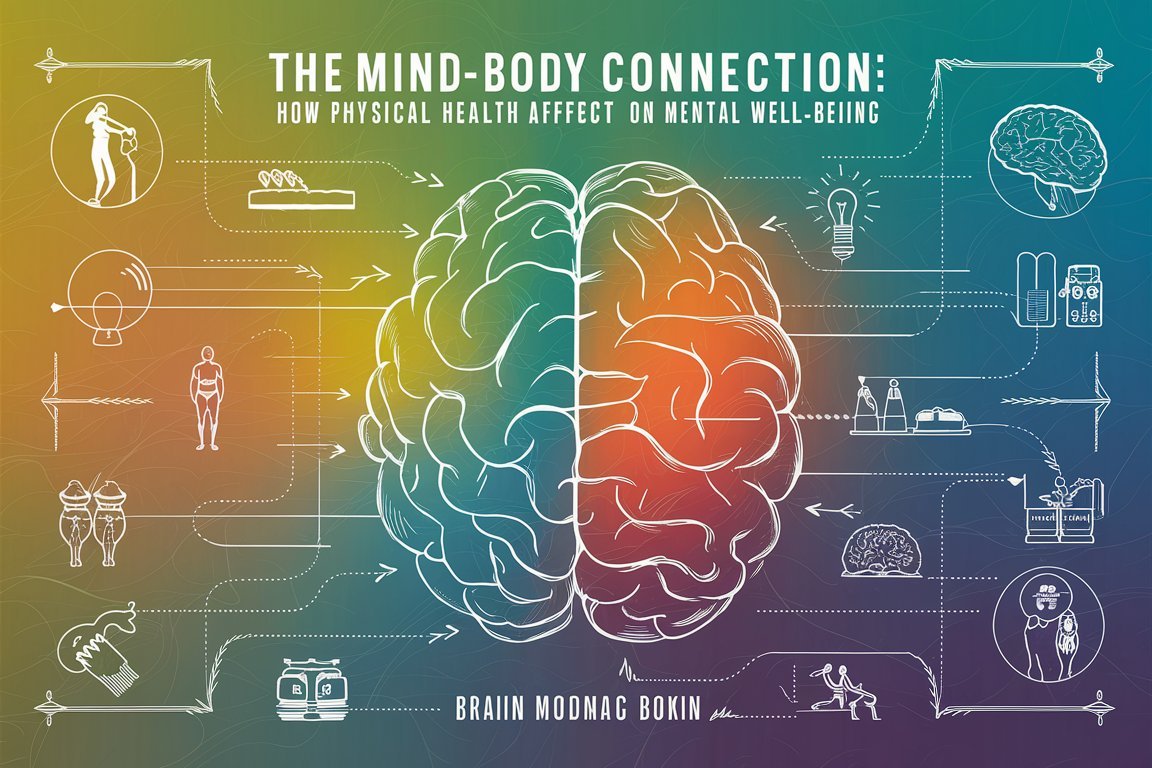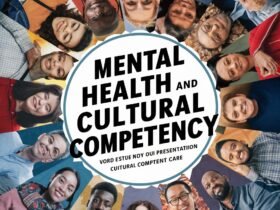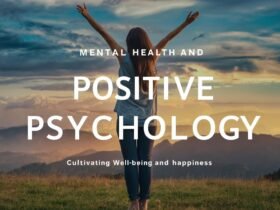The Mind-Body Connection: How Physical Health Affects Mental Well-being
Hey there, young explorers! Today, we’re going to embark on a fascinating journey into the world of the mind-body connection. Now, I know what you might be thinking – “What in the world is a mind-body connection?” Well, buckle up, because we’re about to find out!
What is the Mind-Body Connection?
First things first, let’s define what we mean by the mind-body connection. Essentially, it’s the idea that our physical health and our mental health are closely linked – like two peas in a pod!
Think about it this way: when you’re feeling sick or in pain, it’s hard to feel happy and energetic, right? And when you’re feeling stressed or anxious, you might notice physical symptoms like a stomachache or headache.
That’s because our minds and bodies are constantly communicating with each other through a complex network of hormones, neurotransmitters, and other chemical messengers. When one part of the system is out of balance, it can affect the whole shebang!
The Impact of Physical Health on Mental Well-being
So, how exactly does our physical health affect our mental well-being? Let’s dive in and explore some of the ways:
Exercise and Mood
Have you ever noticed how good you feel after running around outside or playing a sport? That’s because exercise releases feel-good chemicals in our brains called endorphins, which can boost our mood and reduce stress and anxiety.
In fact, regular exercise has been shown to be just as effective as medication for treating mild to moderate depression! And it doesn’t have to be anything fancy – even a brisk walk or a game of tag can do the trick.
Sleep and Mental Health
Another big factor in the mind-body connection is sleep. When we don’t get enough shut-eye, it can take a serious toll on our mental health.
Studies have shown that people who don’t get enough sleep are more likely to experience symptoms of depression, anxiety, and even ADHD. That’s because sleep is essential for our brains to process and store information, regulate our emotions, and recharge for the day ahead.
So, if you want to keep your mind and body in tip-top shape, aim for 9-11 hours of sleep per night (I know, easier said than done!).
Nutrition and Brain Function
You know how your parents are always nagging you to eat your veggies? Well, they might be onto something! The foods we eat can have a big impact on our brain function and mental well-being.
For example, foods rich in omega-3 fatty acids (like fish, nuts, and seeds) have been shown to improve memory and concentration, while foods high in sugar and unhealthy fats can lead to brain fog and mood swings.
And let’s not forget about hydration – even mild dehydration can cause fatigue, irritability, and difficulty concentrating. So, make sure to drink plenty of water throughout the day!

Chronic Illness and Mental Health
Finally, it’s important to recognize that chronic physical illnesses (like diabetes, heart disease, or autoimmune disorders) can take a serious toll on mental health.
When you’re dealing with a chronic illness, it can be easy to feel overwhelmed, frustrated, or even hopeless. You might have to deal with pain, fatigue, or other symptoms that make it hard to do the things you love.
That’s why it’s so important to prioritize both physical and mental health when managing a chronic illness. This might mean working with a healthcare team to develop a treatment plan, finding ways to stay active and engaged, and seeking support from loved ones or a mental health professional.
Strategies for Improving Mind-Body Health
Okay, so we know that physical health and mental well-being are closely connected – but what can we do about it? Here are some strategies for improving your mind-body health:
Get Moving
As we mentioned earlier, exercise is a powerful tool for boosting mood and reducing stress. Aim for at least 60 minutes of physical activity per day, whether it’s playing sports, going for a bike ride, or having a dance party in your living room!
Eat a Balanced Diet
Fueling your body with nutrient-rich foods can help support brain function and overall health. Aim for a diet rich in fruits, veggies, whole grains, lean proteins, and healthy fats – and don’t forget to stay hydrated!
Prioritize Sleep
Getting enough quality sleep is essential for both physical and mental health. Establish a consistent bedtime routine, avoid screens before bed, and create a cozy sleep environment (think: cool, dark, and quiet).
Practice Mindfulness
Mindfulness is the practice of being present and fully engaged in the current moment. It can help reduce stress, improve focus, and boost overall well-being.
Try incorporating mindfulness practices into your daily routine, like deep breathing, meditation, or yoga. Even just a few minutes a day can make a big difference!
Connect with Others
Social support is a key factor in mental health and resilience. Make time for activities with friends and family, whether it’s playing games, going on adventures, or just hanging out and chatting.
And if you’re struggling with your mental health, don’t be afraid to reach out for help. Talk to a trusted adult, like a parent, teacher, or counselor – they’re there to support you!
The Future of Mind-Body Health
So, what does the future hold for mind-body health? As we continue to learn more about the complex connections between physical and mental well-being, we can expect to see some exciting developments:
Personalized Medicine
One trend to watch is the rise of personalized medicine – the idea that healthcare should be tailored to an individual’s unique needs and characteristics.
For example, researchers are exploring how genetic factors might influence the way we respond to different treatments for mental health conditions. By understanding these individual differences, we can develop more targeted and effective interventions.
Tech-Assisted Therapies
Another trend to watch is the use of technology to support mental health and well-being. From mental health apps to virtual reality therapies, there are a growing number of tools and resources available to help people manage stress, build resilience, and improve overall well-being.
Of course, technology is not a replacement for human connection and support – but it can be a valuable complement to traditional therapies and self-care practices.
Integrated Care
Finally, we can expect to see a continued shift towards integrated care – the idea that physical and mental health should be treated as interconnected and equally important.
This might mean incorporating mental health screening and support into primary care visits, or developing collaborative care teams that include both medical and mental health professionals.
By taking a holistic approach to health and well-being, we can create a more supportive and effective healthcare system for everyone.
Putting It All Together
Whew, that was a lot of information! But I hope you’re feeling empowered and inspired to take charge of your mind-body health. Remember, your physical and mental well-being are closely connected – and there are lots of things you can do to support both.
Here are a few key takeaways:
- The mind-body connection refers to the complex interplay between physical health and mental well-being.
- Physical factors like exercise, sleep, nutrition, and chronic illness can all have a big impact on mental health.
- There are lots of strategies for improving mind-body health, like getting moving, eating a balanced diet, prioritizing sleep, practicing mindfulness, and connecting with others.
- The future of mind-body health looks bright, with exciting developments in personalized medicine, tech-assisted therapies, and integrated care.
So, what can you do to support your own mind-body health? Here are a few ideas:
- Make time for physical activity every day, whether it’s playing sports, going for a walk, or dancing around your room.
- Fuel your body with nutrient-rich foods, like fruits, veggies, whole grains, and lean proteins.
- Prioritize getting enough quality sleep each night, and establish a consistent bedtime routine.
- Practice mindfulness through activities like deep breathing, meditation, or yoga.
- Connect with friends and family, and don’t be afraid to reach out for help if you’re struggling.
Remember, taking care of your mind and body is a lifelong journey – but it’s one that’s worth taking. By prioritizing your well-being and seeking support when you need it, you can thrive both physically and mentally.
So go forth and nurture that mind-body connection – your future self will thank you!













1 Comment